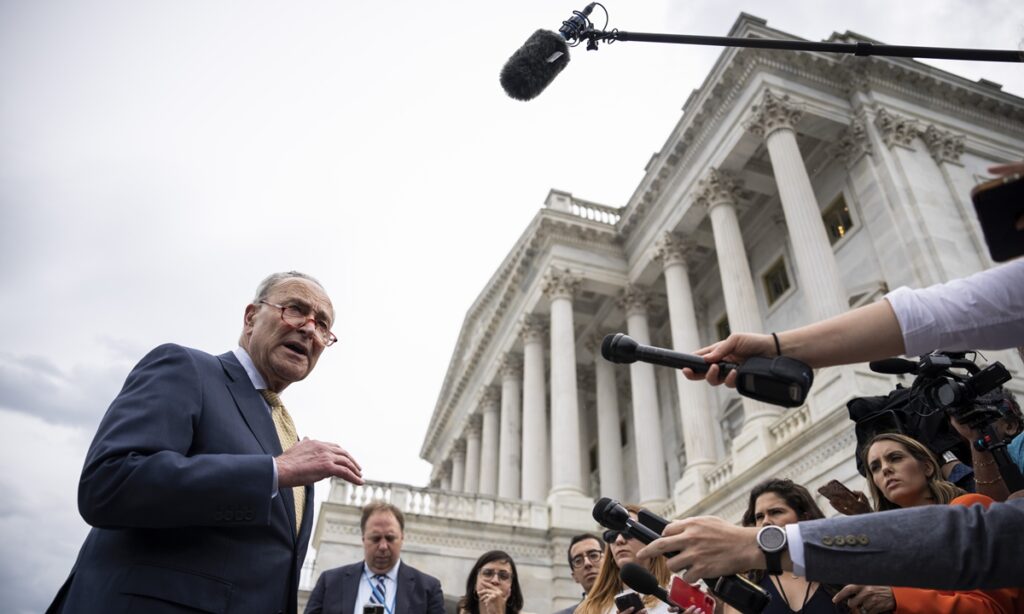Snowballing arrears will erode dollar’s credibility in long run: experts
In less than a week, the US could default for the first time on its national debt, with US lawmakers now racing to raise the debt ceiling ahead of a looming deadline.
It looks like the two US political parties will avoid an actual default, but uncertainties remain, experts said. And, raising the debt limit is just a short-term solution that will erode the dollar’s credibility in the long run.
US Treasury Secretary Janet Yellen set a new deadline for the government to settle the debt ceiling problem, which is June 5. Without an agreement by that time, the US government won’t have enough money to pay its bills, according to a report by National Public Radio.
The US House of Representatives voted 314-117 on Wednesday (US time) in favor of a bill to raise the debt ceiling, pushing the US a step closer to solving the dispute.
CNBC called the vote a “dramatic” conclusion to weeks of tense negotiations between the White House and Republican House Speaker Kevin McCarthy. The bill has been sent to the Senate for a vote, with Senate Majority Leader Chuck Schumer reportedly saying that he hoped the bill could be brought to the president’s desk “as soon as possible.”
The result of the House vote was read by some experts as a short-term compromise, but it obscures long-term hidden risks, they said.
Chen Jia, a veteran macroeconomic observer, said that on the one hand, the Democrats got a lot of support from their Republican rivals on the debt bill, which showed that the Biden administration is more “prudent” compared with previous administrations in dealing with short-term government crises.
On the other hand, the so-called compromise deal is based on staving off an imminent default, instead of a genuine consensus between the two political parties, Chen said.
“The two parties are concerned of the potential economic disasters to be caused by a default. As a result, the two parties made compromises to tide over this crisis,” Chen said.
Approval of the compromise deal by the House won bargaining time in Senate, which Chen described as the real “gladiatorial arena” between the two parties. “The debt negotiations’ success hinges on wrestling between the two parties and the White House, and might still fail before the deadline,” he noted.
Experts said that the crux of the debt problem is that Washington can’t find effective measures to balance government income and expenditure.
The US manufacturing sector is largely “hollowed out” and can’t support the country’s real economy, while expenditure on areas like defense has continued to surge.
If the US government can’t find effective ways to increase government revenue, it can only stick to the model of raising the debt ceiling again and again, which would only erode the credibility of the US dollar in the long run, analysts said.
“If the US government continues to let its debt snowball in an unchecked way, given the high inflation level, it would hurt the US dollar’s credibility in the end,” Tian Yun, a macroeconomic observer, told the Global Times.
If current trends persist, the dollar’s proportion in global currency reserves might sink below 50 percent, he said.
Tian said that the unchecked US debt level will push more countries to reduce their reliance on the dollar in favor of other currencies.
The dollar now represents about 58 percent of the world’s central bank reserves, down from 60 percent in 2015 and 75 percent in 2000, according to media reports.
(Global Times)




